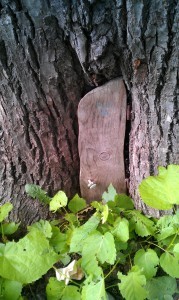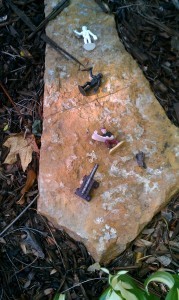Alison McGhee's Blog, page 21
November 9, 2013
From the archives, in honor of Lissa
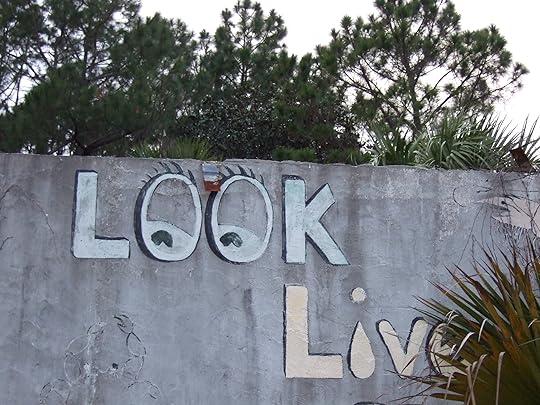 All day today I kept returning to the photo of an old friend, lying in a bed pushed against a bank of windows in her house. Her husband sat in a chair and leaned over the side of the bed, her son held one of her i.v.-tubed hands and her daughter the other. She was smiling and so were they. The photo was taken yesterday morning, on the last full day of her life as her long and mighty battle drew to a close. No one who knew her was left untouched by her grace, her dark humor, her ferocious love of being alive. She left nothing unsaid. All those she loved knew they were loved. If energy remains constant, then she is still with us. From the archives, in honor of Lissa.
All day today I kept returning to the photo of an old friend, lying in a bed pushed against a bank of windows in her house. Her husband sat in a chair and leaned over the side of the bed, her son held one of her i.v.-tubed hands and her daughter the other. She was smiling and so were they. The photo was taken yesterday morning, on the last full day of her life as her long and mighty battle drew to a close. No one who knew her was left untouched by her grace, her dark humor, her ferocious love of being alive. She left nothing unsaid. All those she loved knew they were loved. If energy remains constant, then she is still with us. From the archives, in honor of Lissa.
* * *
You get a reminder of it sometimes, when you walk by a house being built. Or when you’re tearing out a wall damaged by one of last winter’s ferocious ice dams. Or when your electrician friend comes to put in a new outlet in the room that has only one.
Touring a factory can do it too. A brewery, for example. The cavernous rooms, the grind and hum of machinery, the rattle of conveyor belts, the machines that fill the bottles, the giant vats of beer, the sour smell of fermentation.
Followed by the sight of perfectly packaged six-packs: brown bottles in their bright boxes, silently stacked on shelves. You see them in the store and, unless you consciously remind yourself, you forget where they came from. You don’t think about the mess, the grind, the chaos of their beginning.
When the wall of the house is torn open, it’s impossible to forget. Rough lathe and crumbled old plaster, newspapers from 1945 stuffed inside for insulation. Electrical cords writhing their way in twisted bundles up and down between floors.
If you hover in the room when the electrician is working on the outlet, watching and waiting, you will see sparks fly, the tiniest of fires.
This too will remind you of what is beneath the surface. All these reminders, all the time, should you choose to notice them: there is another life alongside this life.
Now you’re thinking of when writing is the easiest, which is when you’re not thinking. Your fingers are just tap-tapping away, and words appear on the screen and you look at them with interest, as if they were written by someone else.
Were they?
An image appears in your mind: a little bracelet made of red plastic beads next to a blue child’s ring. These were the treasures that you and some of your friends in fifth grade played King of the Mountain with one brief winter week. The snow piles at the elementary school were so high that year that you dug snow caves into them, made snow roads on top of them.
You buried the jewelry and searched for it. Why this game was so entrancing you don’t know, but all of you were entranced. Then came the day when the jewelry couldn’t be found, and the game ended.
The thing is, though, it’s still there. That red plastic bracelet, that little blue ring: they are still out there. Probably feet under the ground in the grass by the side of the red brick elementary school, but there.
All these years –almost your whole life, at this point– you have thought about them. The red bracelet. The blue ring.
Nothing goes entirely away. Some part of it stays.
Look at that small, square brown pillow with a pattern of leaves needlepointed on top. It was the first thing that caught your eye just now when you looked up. It’s carefully placed by the armrest of the couch in this room. Your grandmother made that pillow.
You look at it and she immediately fills your mind. You can hear her voice. You can see her hand, arthritic fingers and ropy veins. Now she’s laughing. Now she’s urging more raspberry popover and ice cream on you.
Doesn’t this mean that she’s still here? That some part of her is still with you, like the silent, unseen electricity running its way up and down every wall of this house?
Yesterday, a lovely day when the outdoors was made indolent by the sun, you passed two girls and a boy, late teens all, sitting on a stone bench by the lake. Laughing. Tugging down the shoulders of their tanks, flexing their biceps, each insisting their muscles were the biggest.
You wanted to stop and watch them, they were so beautiful. Smooth, smooth brown skin, white teeth, dark hair tied back. You walked away from them, listening to their easy talk. You tried to picture them fifty years hence, what they would be like then, if they would still know each other, still be together.
Then you imagined the bones and blood and ligaments and arteries just under the surface of that silken skin, how it is there right now. Hidden. Invisible. Doing its silent work.That shadow world, indivisible from the outer one in which we move.
Sometimes you sense another world, a shadow world happening alongside this one. An unseen world of spirits and memories, things you once held. The world where the stories begin.
Sometimes you get a glimpse of it. The torn-open wall, a presence on the stairs, a long-lost voice come whispering into a dream. Your grandmother, and that one line in that one letter: “What a beautiful life we had.”
Sometimes, falling asleep or waking up, there is the sensation of something just out of reach. A familiar stranger with you, hiding his face amidst a crowd of stars.
Poem of the Week, by Barbara Crooker
In the Middle
- Barbara Crooker
of a life that’s as complicated as everyone else’s,
struggling for balance, juggling time.
The mantle clock that was my grandfather’s
has stopped at 9:20; we haven’t had time
to get it repaired. The brass pendulum is still,
the chimes don’t ring. One day you look out the window,
green summer, the next, and the leaves have already fallen,
and a grey sky lowers the horizon. Our children almost grown,
our parents gone, it happened so fast. Each day, we must learn
again how to love, between morning’s quick coffee
and evening’s slow return. Steam from a pot of soup rises,
mixing with the yeasty smell of baking bread. Our bodies
twine, and the big black dog pushes his great head between,
his tail is a metronome, 3/4 time. We’ll never get there,
Time is always ahead of us, running down the beach, urging
us on faster, faster, but sometimes we take off our watches,
sometimes we lie in the hammock, caught between the mesh
of rope and the net of stars, suspended, tangled up
in love, running out of time.
–
For more information on Barbara Crooker, please click here: http://www.barbaracrooker.com/
–
My Facebook page: http://www.facebook.com/home.php?#!/pages/Alison-McGhee/119862491361265?ref=ts
November 2, 2013
Poem of the Week, by Leigh Hunt
- Leigh Hunt
Jenny kissed me when we met,
Jumping from the chair she sat in;
Time, you thief, who love to get
Sweets into your list, put that in;
Say I’m weary, say I’m sad,
Say that health and wealth have missed me,
Say I’m growing old, but add,
Jenny kissed me.
–
For more information on Leigh Hunt, please click here: http://www.poetryfoundation.org/bio/leigh-hunt
–
My Facebook page: http://www.facebook.com/home.php?#!/pages/Alison-McGhee/119862491361265?ref=ts
October 19, 2013
Poem of the Week, by Mike White
- Mike White
Let the work
of art be
beautiful
as the fire
escape is
beautiful
dazzled in ice
after the fire
–
For more information on Mike White, please click here: http://www.poetryfoundation.org/bio/mike-white
–
My Facebook page: http://www.facebook.com/home.php?#!/pages/Alison-McGhee/119862491361265?ref=ts
October 12, 2013
Poem of the Week, by Wesley McNair
- Wesley McNair
Why, when we say goodbye
at the end of an evening, do we deny
we are saying it at all, as in We’ll
be seeing you, or I’ll call, or Stop in,
somebody’s always at home? Meanwhile, our friends,
telling us the same things, go on disappearing
beyond the porch light into the space
which except for a moment here or there
is always between us, no matter what we do.
Waving goodbye, of course, is what happens
when the space gets too large
for words – a gesture so innocent
and lonely, it could make a person weep
for days. Think of the hundreds of unknown
voyagers in the old, fluttering newsreel
patting and stroking the growing distance
between their nameless ship and the port
they are leaving, as if to promise I’ll always
remember, and just as urgently, Always
remember me. It is loneliness, too,
that makes the neighbor down the road lift
two fingers up from his steering wheel as he passes
day after day on his way to work in the hello
that turns into goodbye? What can our own raised
fingers to for him, locked in his masculine
purposes and speeding away inside the glass?
How can our waving wipe away the reflex
so deep in the woman next door to smile
and wave on her way into her house with the mail,
we’ll never know if she is happy
or sad or lost? It can’t. Yet in that moment
before she and all the others and we ourselves
turn back to our disparate lives, how
extraordinary it is that we make this small flag
with our hands to show the closeness we wish for
in spite of what pulls us apart again
and again: the porch light snapping off,
the car picking its way down the road through the dark.
–
For more information on Wesley McNair, please click here: http://www.poetryfoundation.org/bio/wesley-mcnair
–
My Facebook page: http://www.facebook.com/home.php?#!/pages/Alison-McGhee/119862491361265?ref=ts
October 5, 2013
Poem of the Week, by Thomas Allan Ore
- Thomas Allan Ore
The October air was warm and musky, blowing
Over brown fields, heavy with the fragrance
Of freshly combined beans, the breath of harvest.
He was pulling a truckload onto the scales
At the elevator near the rail siding north of town
When a big Cadillac drove up. A man stepped out,
Wearing a three-piece suit and a gold pinky ring.
The man said he had just invested a hundred grand
In soybeans and wanted to see what they looked like.
The farmer stared at the man and was quiet, reaching
For the tobacco in the rear pocket of his jeans,
Where he wore his only ring, a threadbare circle rubbed
By working cans of dip and long hours on the backside
Of a hundred acre run. He scooped up a handful
Of small white beans, the pearls of the prairie, saying:
Soybeans look like a foot of water on the field in April
When you’re ready to plant and can’t get in;
Like three kids at the kitchen tables
Eating macaroni and cheese five nights in a row;
Or like a broken part on the combine when
Your credit with the implement dealer is nearly tapped.
Soybeans look like prayers bouncing off the ceiling
When prices on the Chicago grain market start to drop;
Or like your old man’s tears when you tell him
How much the land might bring for subdivisions.
Soybeans look like the first good night of sleep in weeks
When you unload at the elevator and the kids get Christmas.
He spat a little juice on the tire of the Cadillac,
Laughing despite himself and saying to the man:
Now maybe you can tell me what a hundred grand looks like.”
–
For more information on Thomas Allan Ore, please click here: https://sites.google.com/site/restorationpresspoetry/notices-and-reviews/interview-with-thomas-alan-orr
–
My Facebook page: http://www.facebook.com/home.php?#!/pages/Alison-McGhee/119862491361265?ref=ts
September 28, 2013
Poem of the Week, by Carl Sandburg
- Carl Sandburg
Let the crows go by hawking their caw and caw.
They have been swimming in midnights of coal mines somewhere.
Let ‘em hawk their caw and caw.
Let the woodpecker drum and drum on a hickory stump.
He has been swimming in red and blue pools somewhere hundreds of years
And the blue has gone to his wings and the red has gone to his head.
Let his red head drum and drum.
Let the dark pools hold the birds in a looking-glass.
And if the pool wishes, let it shiver to the blur of many wings, old
swimmers from old places.
Let the redwing streak a line of vermillion on the green wood lines.
And the mist along the river fix its purple in lines of a woman’s
shawl on lazy shoulders.
–For more information on Carl Sandburg, please click here: http://www.poetryfoundation.org/bio/carl-sandburg
–
My Facebook page: http://www.facebook.com/home.php?#!/pages/Alison-McGhee/119862491361265?ref=ts
September 23, 2013
Write about a word that makes you squirm
* * *
A children’s dentist in a little upstate New York city. A room on the second floor of an old house, light filtering in through large paned windows. A fish tank burbling in the corner, orange and blue and yellow fish darting in and out of the windows of a small castle.
A white dental chair and a gentle man with metal instruments that feel cool and soft in your mouth.
A basket of unpainted, blank-eyed, plaster-cast figurines. The post-dentist-visit treat to take home and paint.
“Which one do you want, Alison?”
You point.
“The angel.”
* * *
The neutral living room of a man reputed to diagnose the undiagnosed and heal them with psychic surgery. You are there with a friend in need of healing. You, interested, sit in the corner and listen and absorb the man’s changing face as he half-closes his eyes and tunes in to your friend’s malady.
But the man suddenly turns to you.
“I can’t ignore them,” he says. “Are you aware of them?”
You don’t know what he’s talking about.
“Angels,” he says. “Your guardian angels. There’s one on either side of you.”
He shakes his head.
“I can’t believe how beautiful they are,” he says. “Tall and yellow-green, rising like smoke.”
A hair salon in south Minneapolis. The calm and graceful woman who has been cutting your hair for eighteen years. You know secrets about each other.
You remember a look on her face once, long ago. You knew that what you both suspected was going to happen must have happened.
Another time, you sat down in the twirly chair and she stood behind you, lifting your hair and studying your face. Then, suddenly, her hands came down on either side of you and she held your shoulders and kept holding them. She said nothing and neither did you, while you fought to keep the tears back.
Now she is getting married again.
“Tell me again what day the wedding is?” you ask, and she tells you.
“And what exact time is it?” you say, and she tells you that too.
But she intuits what you’re thinking and she tells you that it’s a one-hour time difference, so be sure to factor that in.
“Bring in the angels,” she whispers in your ear as you hug her goodbye. “I want them all gathered around.”
* * *
 Walk into your house to see your youthful companion bent over her biology textbook at the dining table. Watch as she mumbles long biology words to herself, prepping for a test tomorrow.
Walk into your house to see your youthful companion bent over her biology textbook at the dining table. Watch as she mumbles long biology words to herself, prepping for a test tomorrow.
“Help,” you say. “I have to write about a word I don’t like. And I really don’t like the word I picked.”
“Don’t do it then,” she says.
She lifts her dark eyes from the notes strewn around the table and flashes her white grin.
“Write about me instead,” she says. “After all, I’m your youngest angel.”
* * *
September 21, 2013
Poem of the Week, by Coleman Barks
- Coleman Barks
A hummingbird sleeps among the wonders.
Close to dark, he settles on a roosting limb
and lowers his body temperature
to within a few degrees of the air’s own.
As the bird descends into torpor,
he assumes his heroic sleep posture,
head back, tilted beak pointing to the sky,
angling steep, Quixotic, Crimean.
This noctivation, the ornithologist word for it,
is very like what bears do through the winter.
Hummingbirds live the deep drop every night.
You can yell in his face and shake the branch.
Nothing. Gone. Where? What does he dream of?
He dreams he is the great air itself, the substance
he swims in every day, and the rising light
coming back to be his astonishing body.
–
For more information on Coleman Barks, please click here: http://www.colemanbarks.com/
–
My Facebook page: http://www.facebook.com/home.php?#!/pages/Alison-McGhee/119862491361265?ref=ts
September 15, 2013
“If we’re not supposed to dance, why all this music?”*
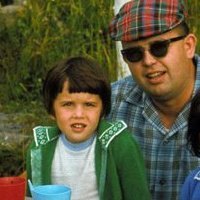 “To be alive: not just the carcass
“To be alive: not just the carcass
But the spark.
That’s crudely put, but…”
The lit-up second floor of a country grange hall. Silent countryside stretching for miles in the black night beyond. A polka band playing in the corner. A giant man –your father– telling you to hold his hands tight and stand on his feet. The crowd, lights, music, whirling past your half-closed eyes as he turns you around and around on the creaky wooden floorboards.
* * *
A ballet studio on the second floor of a frame house in a nearby village. First position. Second position. Third, fourth, fifth positions. Plie. Arabesque. Releve.
* * *
The darkened gym of a high school in the country. Rock ‘n roll so loud your ears ring all the next day. The feel of the cinder block wall against your back as you wait out the slow dances, wondering will your turn ever come.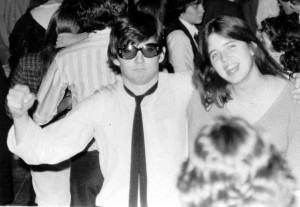
* * *
The Alibi, a bar in a tiny town in Vermont. Nickel beers on Wednesdays, dancing every Friday and Saturday. Ellen in her lavender shirt, you in your red shirt, waiting in the entry way until the cover charge drops to half price. The tiny square dance floor where every song, in your memory, is by the Police.
* * *
A party in Maine. A swing band. A skirt that swings, a man with dark eyes. Your body unsure of itself, unable to follow the tight rhythms. Not like that. Like this– the dark-eyed man curls your fingers tight around the tips of his– Resist me. Follow me, and at the same time resist me. And off you go.
* * *
A wedding outside on a rainy night under a big tent. Boards laid across mud. The band strikes up and the athlete guests spring to their feet. A laughing man holds out his hand: Come on, Alison, let’s go. Mud-soaked red shoes: one heel broken, one strap missing, carried in your hand by the end of the night.
* * *
Late night. A crowded apartment. The music on shuffle. Dancing in the new year with a glass of whiskey in one hand, the other draped around a man’s back. His hand on your waist. The world turning on its axis and the world’s inhabitants waiting for another midnight. Another chance.
* * *
Late night in an empty house. Ouzo on ice. Windows open to the summer air. Bare feet. Dog half-asleep on couch. 92-year-old neighbor washing dishes at her sink. All the lights turned off, the music turned up, and you, dancing around your dining table.
* * *
A summer night high in the grandstand. 95 degrees in the shade. A man pointing up in your direction: I’m not gonna forget about you people way up there. Clapping and laughing with everyone else as he dances his way down from the stage, leaps the fences, up through the crowd, up and up and up until he’s right there in the aisle, next to you, and you and everyone else are dancing with him, dripping sweat and laughing. 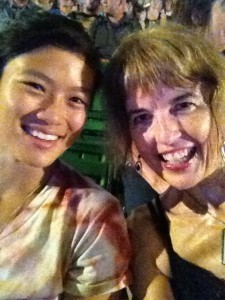
“. . . If we’re not supposed to dance, why all this music?”
*To Be Alive, by Gregory Orr.

